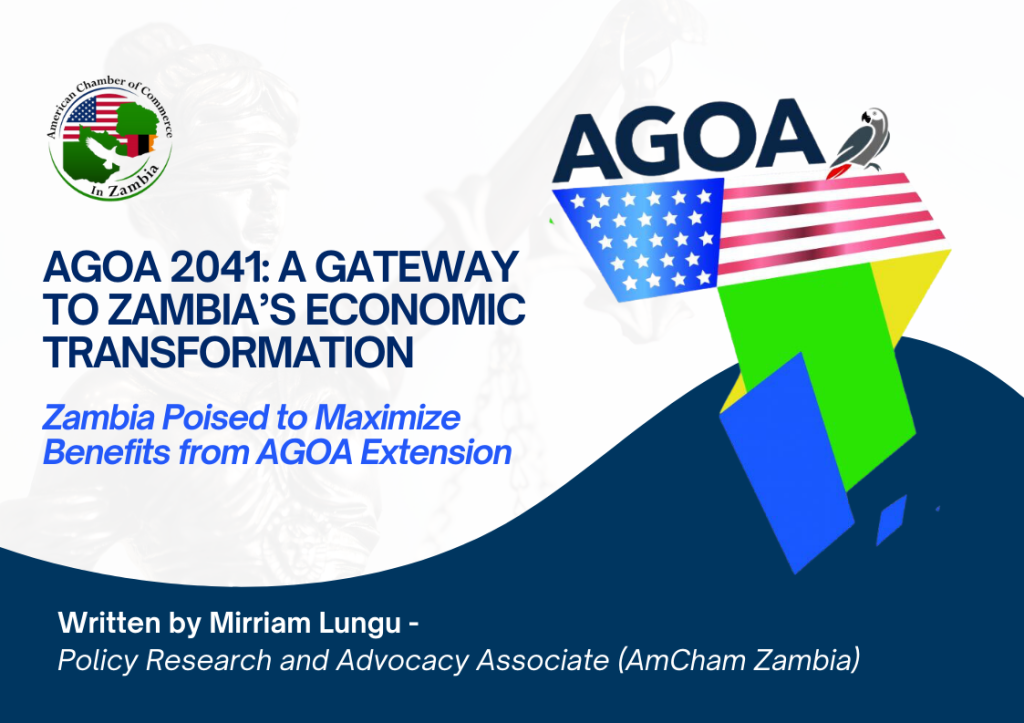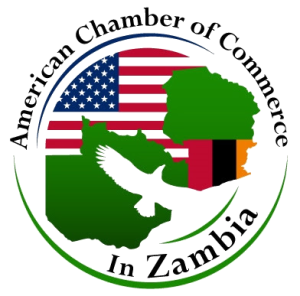
The recent extension of the African Growth and Opportunity Act (AGOA) to 2041 marks a significant milestone in U.S.-Africa trade relations. As the American Chamber of Commerce (AmCham) Zambia, we see this as a transformative opportunity to bolster Zambia’s economic development, deepen trade ties, and foster long-term investment opportunities for Zambian businesses.
The Importance of AGOA
AGOA has, for over two decades, provided eligible African countries with duty-free access to the U.S. market, covering over 1,800 products. For Zambia, this represents a unique platform to diversify our export base, moving beyond mining to include value-added goods like textiles, agricultural products, and processed foods. By leveraging AGOA, Zambian businesses have the chance to expand their reach into one of the world’s largest consumer markets.
New Opportunities with the Extension
The new rules under AGOA emphasize compliance with human rights and governance reforms, regional integration, and trade diversification. For Zambia, this means aligning with the African Continental Free Trade Agreement (AfCFTA) to strengthen our regional supply chains and improve competitiveness. It also provides incentives for businesses to enhance quality and meet international standards, which will not only boost exports but also attract foreign direct investment.
Challenges and Call to Action
While AGOA presents immense potential, it also comes with challenges. Eligibility requirements necessitate adherence to good governance and human rights practices, areas where continued vigilance and reform are essential. Moreover, Zambian businesses must tackle limited value addition and ensure that our exports are competitive in both quality and pricing.
As AmCham Zambia, we call on the government, private sector, and development partners to collaborate in addressing these challenges. Investments in infrastructure, capacity building, and technology adoption are critical to unlocking AGOA’s full potential.
Zambia’s Path Forward
Zambia has already demonstrated its capacity for excellence in agriculture, textiles, and light manufacturing. By prioritizing these sectors, we can create jobs, empower small and medium enterprises, and reduce reliance on copper exports. AGOA’s emphasis on sustainable trade and regional integration aligns with Zambia’s aspirations for economic diversification and industrialization.
Conclusion
The AGOA extension is not just a policy shift it is a call to action. Zambia stands at a crossroads, with an opportunity to redefine its economic future. As AmCham Zambia, we reaffirm our commitment to supporting businesses, advocating for pro-growth policies, and ensuring Zambia remains an active participant in AGOA. Together, we can turn this opportunity into a legacy of prosperity for generations to come.
